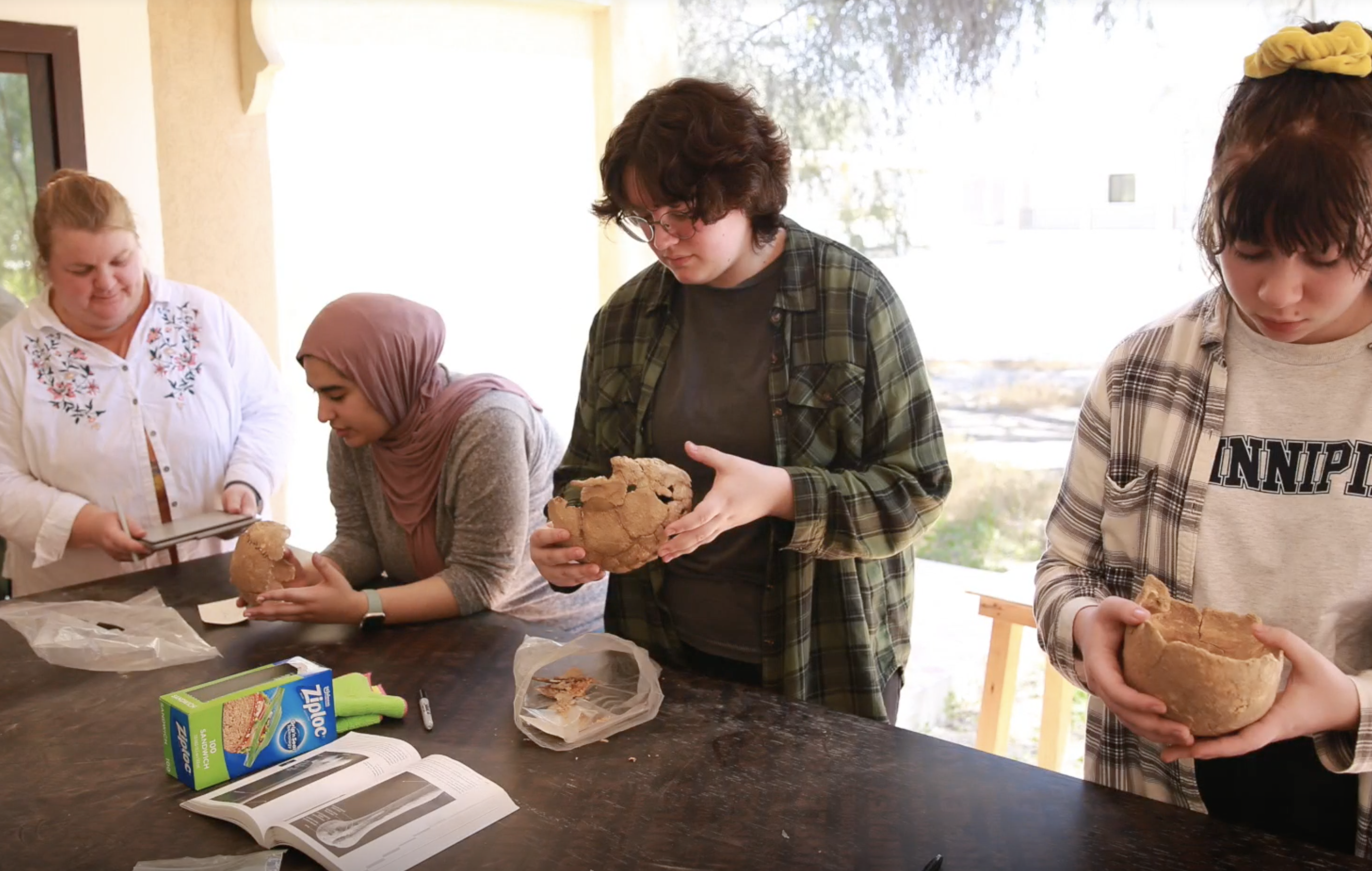Archaeologists in Ras Al Khaimah have partnered with two United States universities to analyse 4,000-year-old human remains to see if a dramatic climate event at that time can help inform how humans’ biology would be affected by a similar event in the future.
A professor and student team of bio-anthropologists from Quinnipiac University, Connecticut, U.S., led by Professor Jaime Ullinger, recently visited archaeologists at Ras Al Khaimah Department of Antiquities and Museums to study human skeletons from the 2nd millennium BC to analyse their potential in bio-archaeological studies, with the goal being to research the effects of climate change on human biology between the Umm Al Nar and Wadi Suqperiods in Ras Al Khaimah. The human remains are from a time of severe climate change characterised by drought.
The visit is part of an ongoing collaboration, named “The Bio-Archaeology of Bronze Age Social Systems”, between Ras Al Khaimah Department of Antiquities and Museums, Quinnipiac and the University of South Alabama, with professors and students from both universities expected to return to Ras Al Khaimah before the end of the year.
During a previous visit to Ras Al Khaimah in 2017, university teams worked on human remains to study the diet, health and behavior of the Umm Al Nar people and their funeral practices. The human bones studied were found in Ras Al Khaimah’s Shimal – a prominent archaeological site dating back to the Umm Al Nar culture (2,600 to 2,000BC) – where archaeologists previously discovered evidence for prehistoric tombs, settlements and a medieval fortress.
The recent visit to Ras Al Khaimah was a preliminary trip to assess the human remains and there is scope for the remains to be taken to the United States for further analysis, and for informative workshops to be conducted with the community in Ras Al Khaimah.
Ahmed Obaid Al Teneiji, Director-General of Ras Al Khaimah Department of Antiquities and Museums, said, “This partnership with Quinnipiac University and University of South Alabama ties with the strategic vision of Ras Al Khaimah Government to highlight the long and rich history of the Emirate and the UAE to our people and the world at large.
“This is a great opportunity for us to examine the human remains found at the multiple ancient tombs across Ras Al Khaimah to understand more about the lives of the people who lived here thousands of years ago and how climate change affected them, which carries real-world implications in modern times.”
Christian Velde, Chief Archaeologist at Ras Al Khaimah Department of Antiquities and Museums, stated, “Ras Al Khaimah is quite unique as we have a large number of tombs and other archaeological sites dating from a time when there is little remaining evidence of human civilization in other parts of the region. From these sites we have unearthed many remains that the Quinnipiac team want to study and feel can provide great insights on human development at this time.
“This partnership is exciting as it will hopefully allow us to understand more about the people who lived here 4,000 years ago and see how a period of extreme drought, lasting for over 100 years, affected their lives. We hope that this will be a long-standing relationship and we look forward to welcoming more professors and students to Ras Al Khaimah.”
Jaime Ullinger, Professor of Anthropology, Co-Director of the Bioanthropology Research Institute at Quinnipiac University, added, “Ras Al Khaimah has a rich archaeological history and the tombs here are large and interesting communal tombs, which are ideal for this type of study. Already we’ve seen bones from the smallest babies to older individuals and we will be analyzing them to check for changes in health – is there more disease or infant mortality, for instance, due to the climactic changes? – though we need to collect a lot more data before we can draw conclusions.
“This is also an important partnership for our students as it gives them a chance to visit the UAE and learn more about archaeology in this region, and we also want to bring this project into the local community in Ras Al Khaimah, to engage people in workshops and share our findings with them.”
Watch video here.


 Heart Of RAK
Heart Of RAK



